Dig into sustainable farm innovations with a search tool and map of SARE grant projects
Find hundreds of SARE grants funded in Michigan and thousands nationally.

Search tool for successful SARE grants and project reports
Searching through projects funded by Sustainable Agriculture Research and Education Program (SARE) grants is simple and allows you to see ideas and results directly from sustainable farm innovators. Examples of grants that have been funded by SARE can help you to write a successful SARE grant and improve sustainability on your farm.
To search the SARE database, go to Search SARE Funded Projects as shown below:
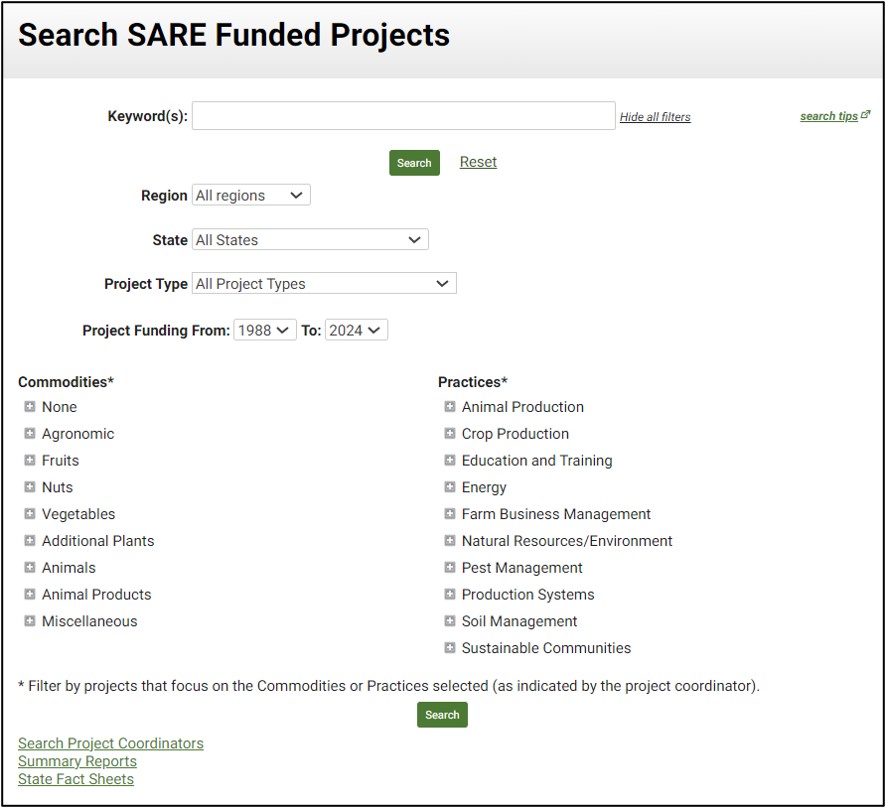
For example, I might be curious about using clover as a cover crop in blueberries and could run the following search:
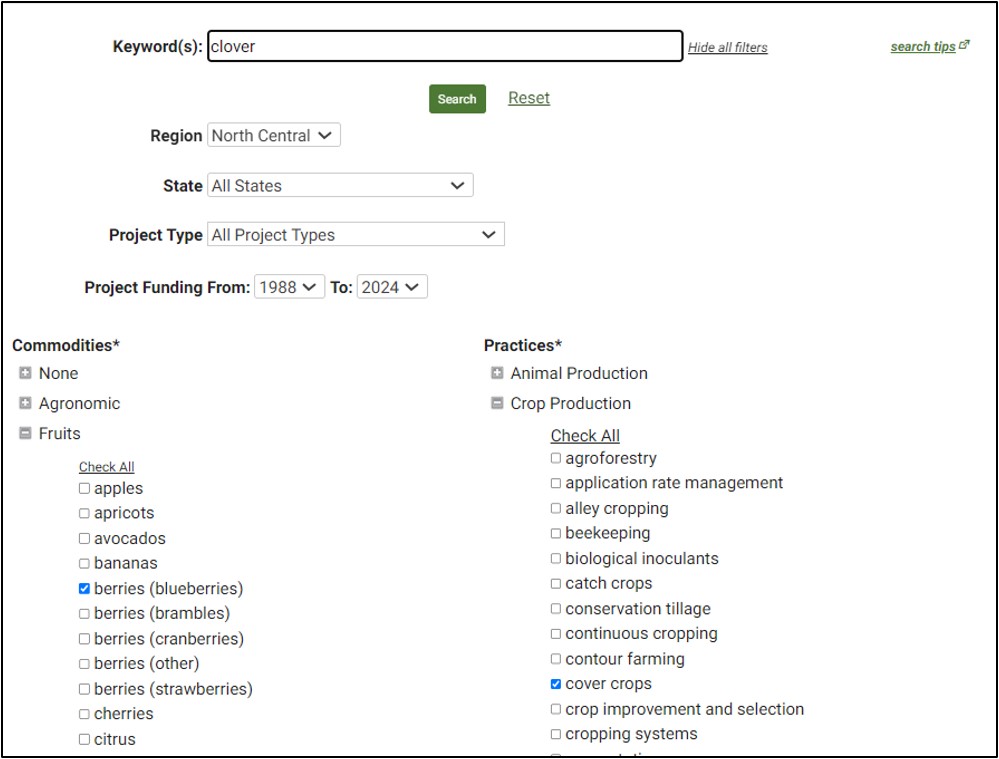
Although that is a very specific search, we found four results:
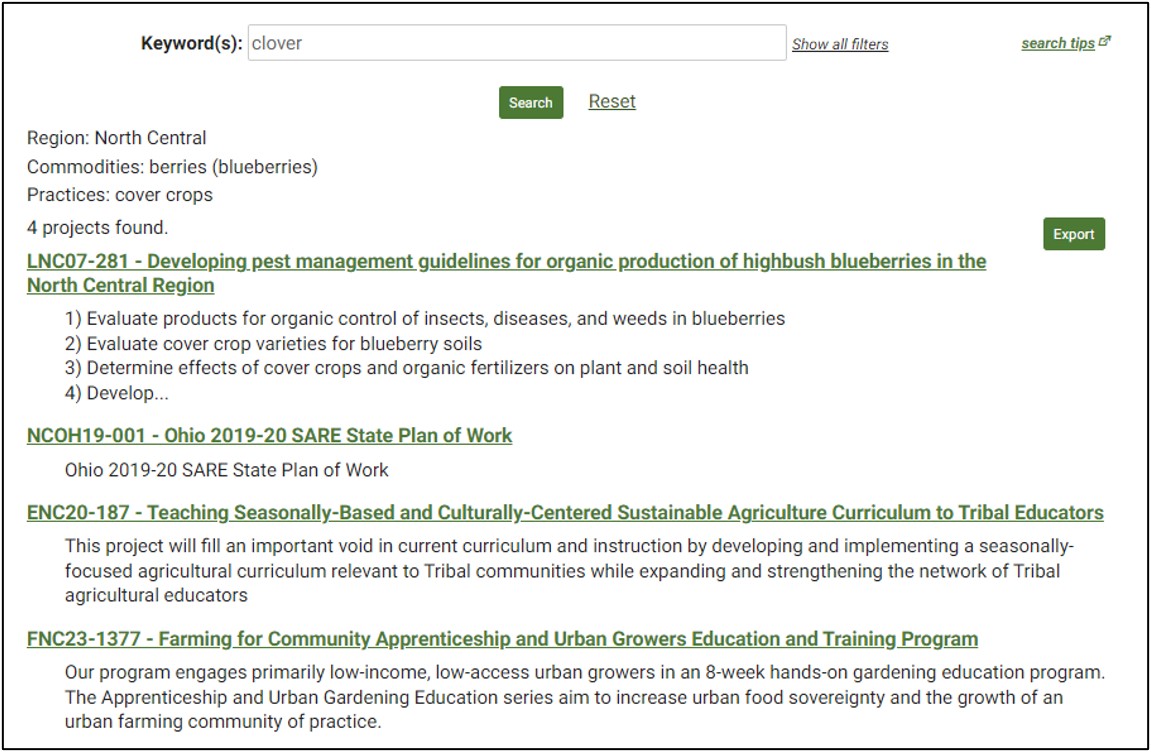
Clicking on any of the proposals will show you the description of the project. If the project is complete, you will also be able to see the final report and possibly also videos, curriculum, slide sets, data or other information products.
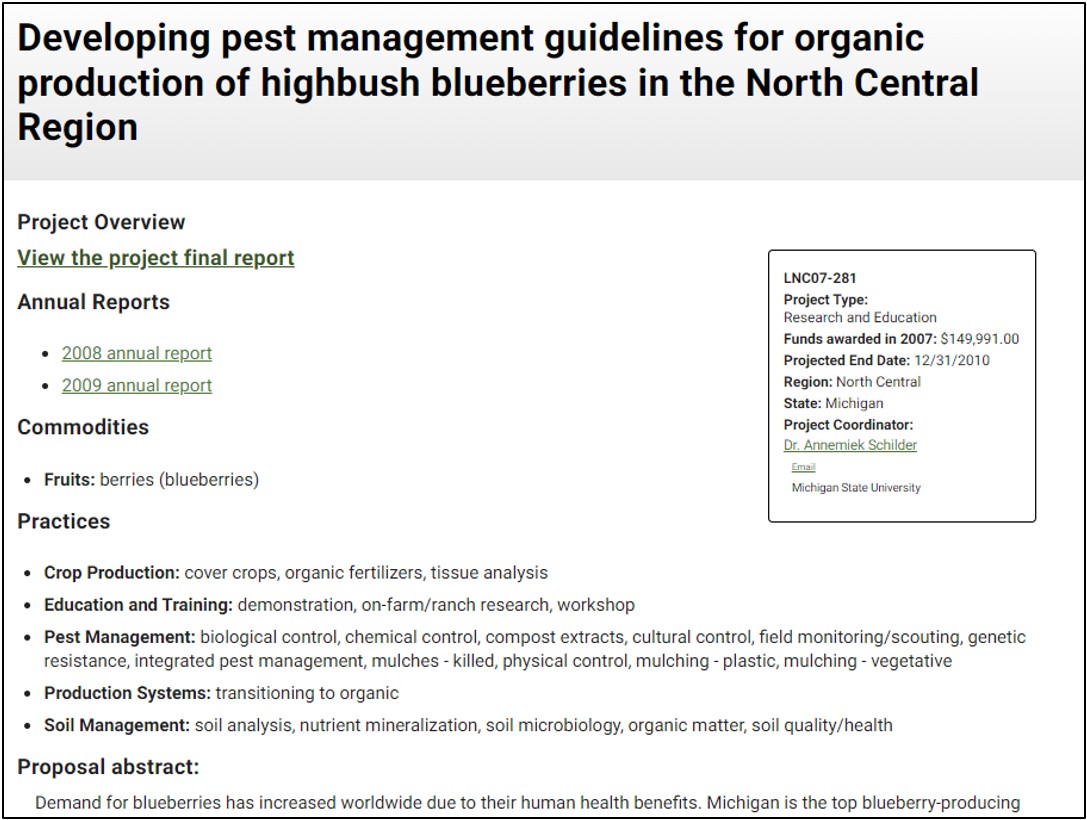
Or maybe you’re considering building a pizza oven on your farm and try a simple keyword search for “pizza” as shown below:
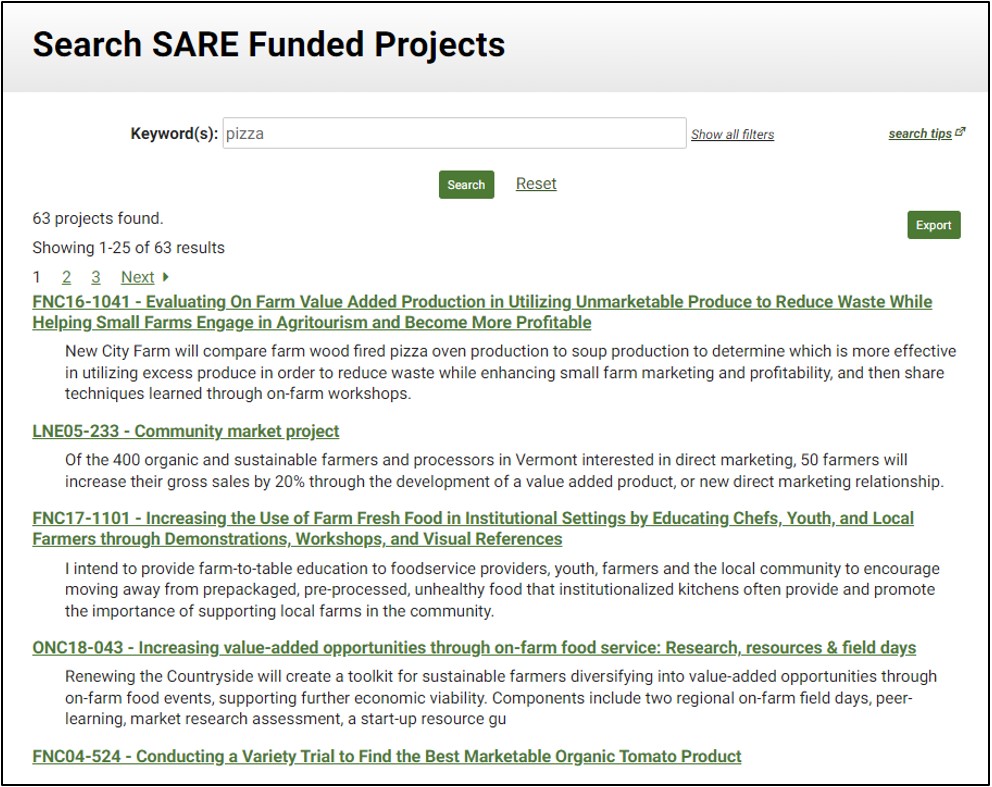
Clicking on the first result takes us to a project in Grand Rapids, Michigan, where you can watch a video or read the final report:
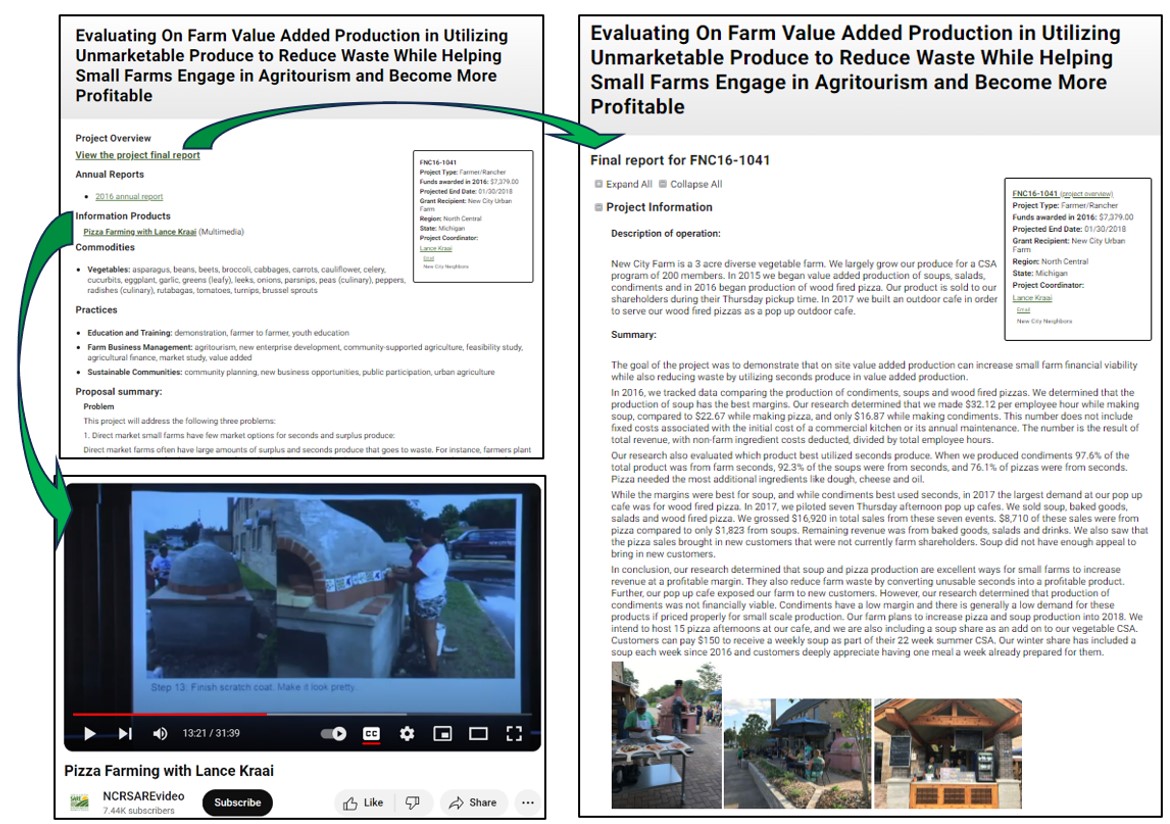
Or you may want to download a page of up to 25 results as a spreadsheet. Just click on the “Export” button at the top right of your search result to see, analyze and sort many similar projects with one click.
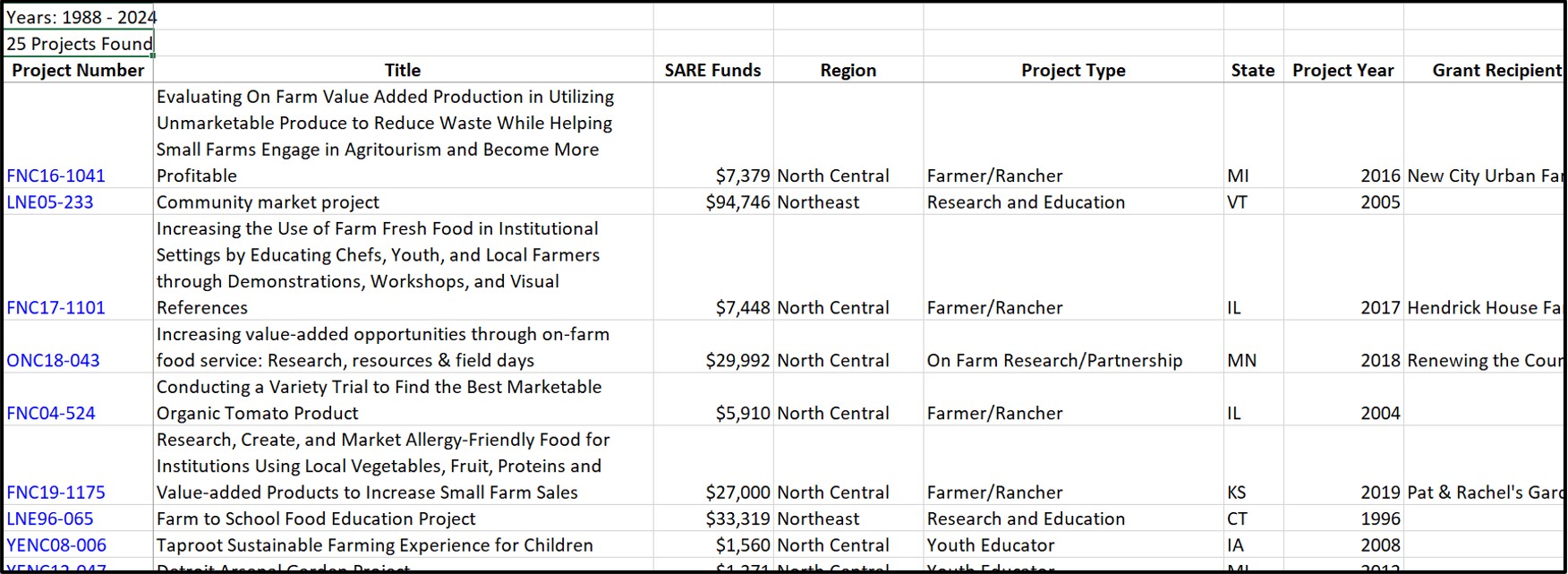
New map features Michigan’s SARE sustainable farming innovators
A new option for searching Michigan’s SARE projects is the Map of Michigan North Central SARE Grants. This map shows over 100 sustainable agriculture projects funded by SARE since 2016 and allows unique search options:
- Click on any icon or grant title in the side bar to see:
- The project title
- A link to the project summary and reports
- Funding amount (e.g. $6,000)
- Year
- North Central SARE grant type (e.g. Farmer Rancher, Youth Educator or Graduate Student)
- Location
- Zoom into a region and click on the icons to see who and what has been funded in your area.
- The icon color and sidebar show what year each grant was funded. You can click the checkboxes by year to see or hide layers if you just want to see grants from a certain time period.
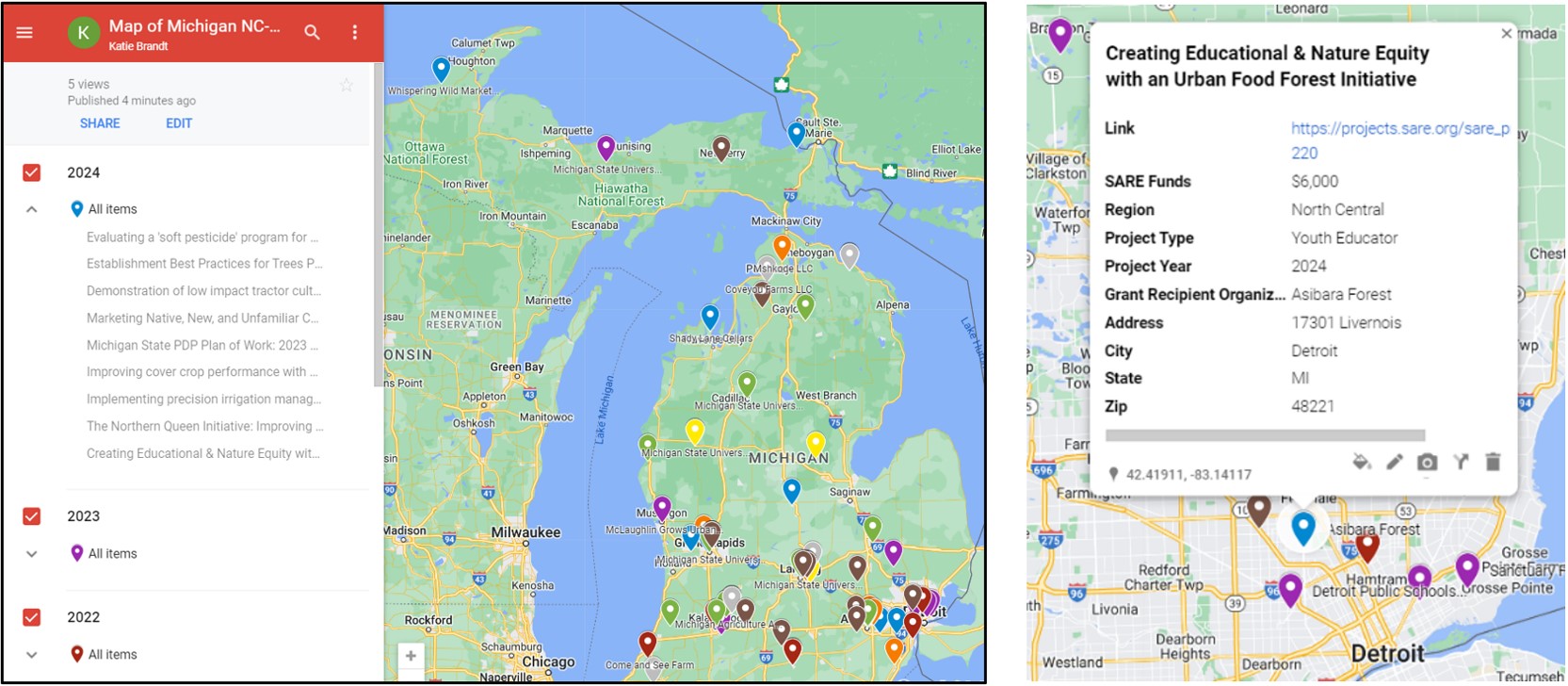
Please let us know if you have any questions or suggestions about the map, SARE grants or an innovative idea you would like to propose for SARE funding. You can contact state SARE coordinator Sarah Fronczak at froncza3@msu.edu or the map designer Katie Brandt at brandtk7@msu.edu.
Sustainable Agriculture Research and Education (SARE)
SARE is a United States Department of Agriculture program that shares numerous resources for farmers and agriculture educators including books, bulletins, videos and more. For more information about SARE grants and resources, visit Michigan SARE or SARE.
North Central Region (NCR) SARE grants include Farmer Rancher Grants, Research and Education Grants, Youth Educator Grants other grant programs. You can find them all at NCR-SARE Grants. Michigan SARE grants include the Michigan SARE Travel Scholarship and two funding opportunities for people organizing sustainable agriculture workshops and conferences.
Michigan SARE Coordinator Sarah Fronczak, Tribal SARE Coordinator Emily Proctor and Katie Brandt from the Michigan State University Organic Farmer Training Program are glad to advise grant applicants, review proposals and support farmers, educators and students applying for NCR-SARE grants. Grant-writing support is available free of charge for all six North Central SARE grants and for Michigan SARE mini-grants. Email froncza3@msu.edu or brandtk7@msu.edu with questions, to have a proposal reviewed or to set up a time to discuss your proposal idea. Tribal members and communities are encouraged to reach out to Emily Proctor at proctor8@msu.edu for assistance with SARE proposals.
The program aims to support an inclusive mix of farmers and does not discriminate on the basis of race, color, national origin, religion, sex, gender identity (including gender expression), sexual orientation, disability, age, marital status, family/parental status, income derived from a public assistance program or political beliefs.



 Print
Print Email
Email




